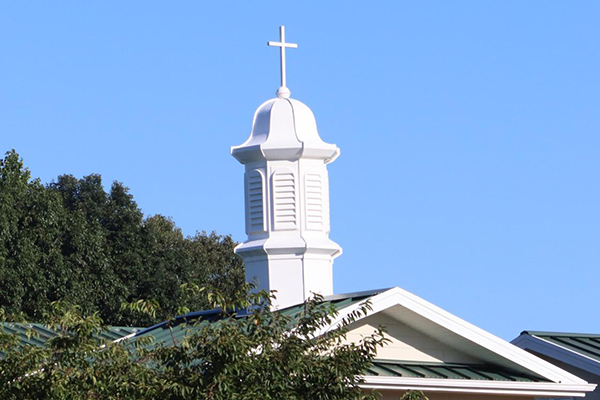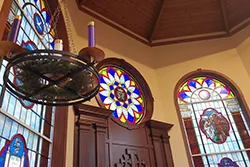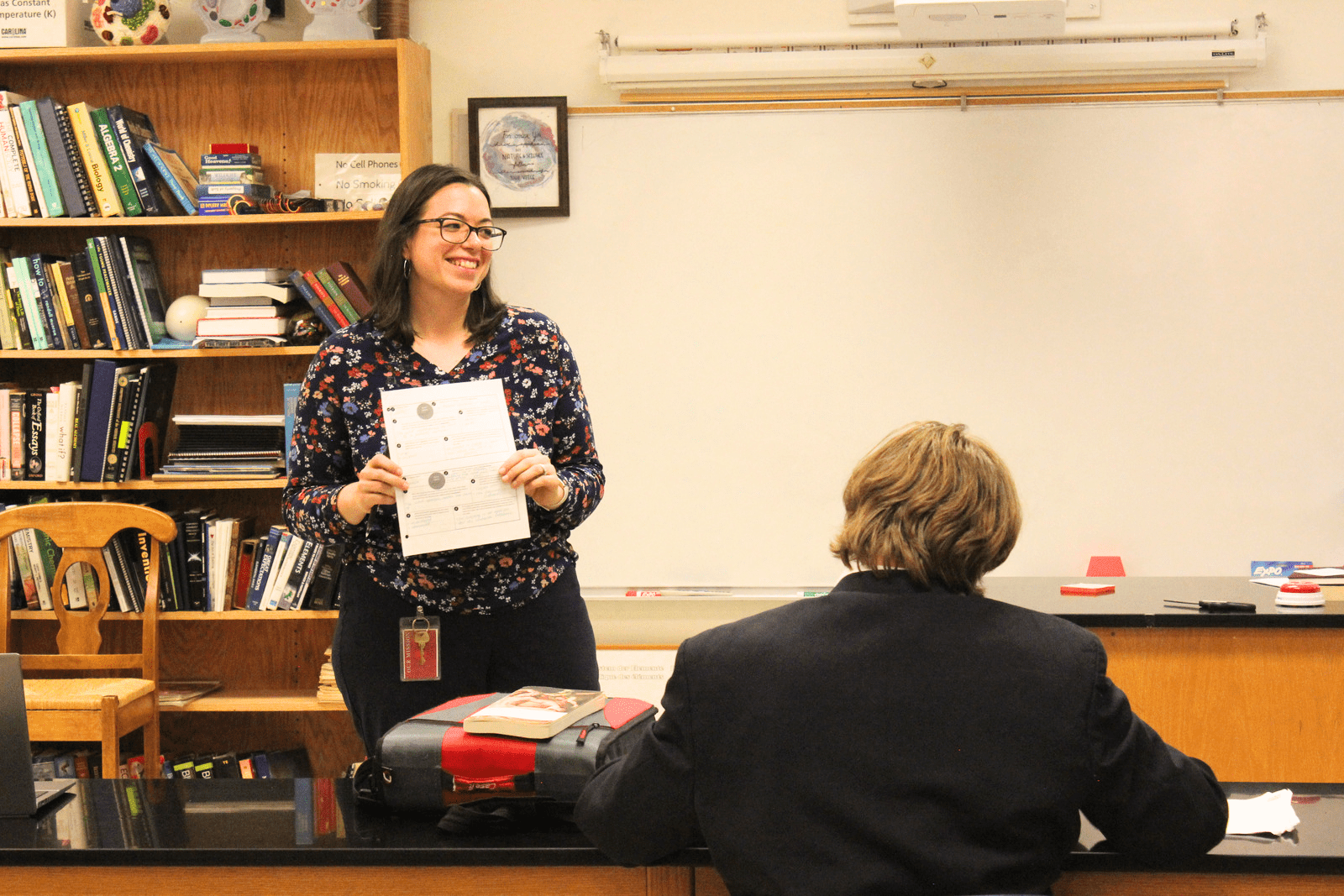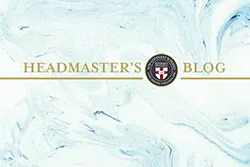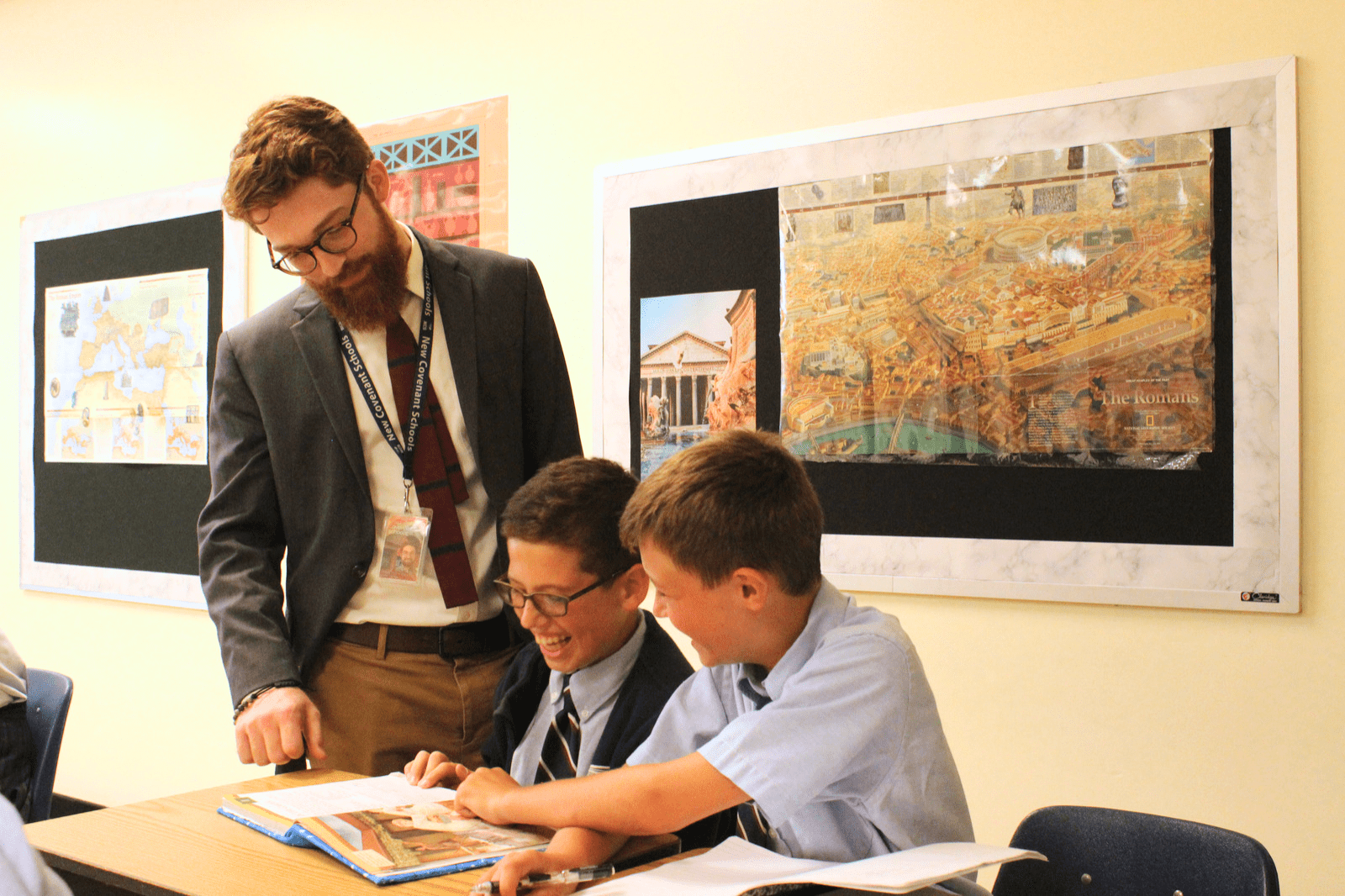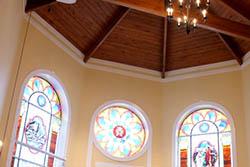Epistle: Philippians 4:4-9
Gospel: St. John 1:19-28
O Lord, raise up, we pray thee, thy power, and come among us, and with great might help us; that whereas, through our sins and wickedness, we are sore let and hindered in running the race that is set before us, thy bountiful grace and mercy may speedily help and deliver us; through Jesus Christ our Lord, to whom, with thee and the Holy Ghost, be honor and glory, world without end. Amen.
The final week of Advent is the moment when we join our voices together to plead with our King to come among us and to help us. The season has been sufficiently long for us to prepare for this moment if we have applied ourselves to the task. The Gospel lesson is the record of the Pharisees going out to John in the wilderness. John was drawing crowds and causing a stir, so naturally the religious specialists had to investigate.
The demands for ID were met with disappointment, but their line of questioning was on solid theological grounds: “Are you the Christ?”
“Are you Elijah?”
“Are you that prophet?”
Each of these questions was rooted in the Jewish expectation that the appearing of the Messiah these personages from the Old Testament, Moses and Elijah, might reappear; Moses, who died under curious circumstances was buried somewhere on Mount Nebo by Yahweh himself; Elijah, who never died but ascended to heaven. The reappearance of either one of these prophets would be a signal event. The rabbis had Daniel’s prophecies and they had done the math. The seventy weeks – 490 years – that he set into motion had run their course. The time was near.
But the answer was “No. I am just a voice…” John’s message was a final call to repentance, because Yahweh was returning to his people, and this time in person. When God invites us to draw near to him it’s an invitation that must be received carefully. In the days before Moses, for example, God was worshipped outdoors. Altars were built outside and there was little, if any ritual.
When the book of Exodus and Leviticus appeared in the history of the Hebrews after the Passover from Egypt there was an explosion of rituals – cleansings, offerings, dietary laws, regulations of skin rashes and discharges. An entire priesthood was set up with a whole regiment of guards who kept the newly constructed tabernacle “safe.” The whole point was one of boundaries that were intended to exclude, not because God didn’t want people near him, but because it wasn’t safe to get too close.
When God draws near it’s dangerous. You can’t get too close or you’ll likely to suffer for it. As God drew near to ancient Israelites and occupied their tents with his presence, sin in every form was blocked out with a constant regimen of sacrifices and rituals, morning and evening and in between.
Thus, the final message of John the Baptist was a potentially terrifying one. Yahweh was coming and he was coming personally. He would suddenly come to his temple and purify the sons of Levi that they might offer unto the Lord a sacrifice in righteousness. The call to us remains the same – to prepare and put off the sins that hinder us from running the race. Our God is a consuming fire, and it is a fearful thing to fall into his hands (that’s quoting the New Testament, not the Old).
For those who are ready, however, the coming of the king is a joyful event, not a moment of condemnation, but one of vindication. So what does repentance look like? Sadly, the Jews themselves largely missed their long-expected Messiah. How could this be?
Repentance is a radical matter. It not only involves the turning away from our own personal sins, but it also requires us to look deeply at the religious, political and cultural constructs that shape the way we perceive reality. Surely the Pharisees were guilty of private sins, hypocrisy being the chief. Their entire way of thinking about the kingdom of God, however, blinded them to its reality from the moment it arrived. Mighty miracles were not enough to convince them; rather, they would attribute such things to the devil himself.
Be not deceived. The work of repentance is deep, hard work, and it must be total. Advent has been all about getting ready? Are you?






